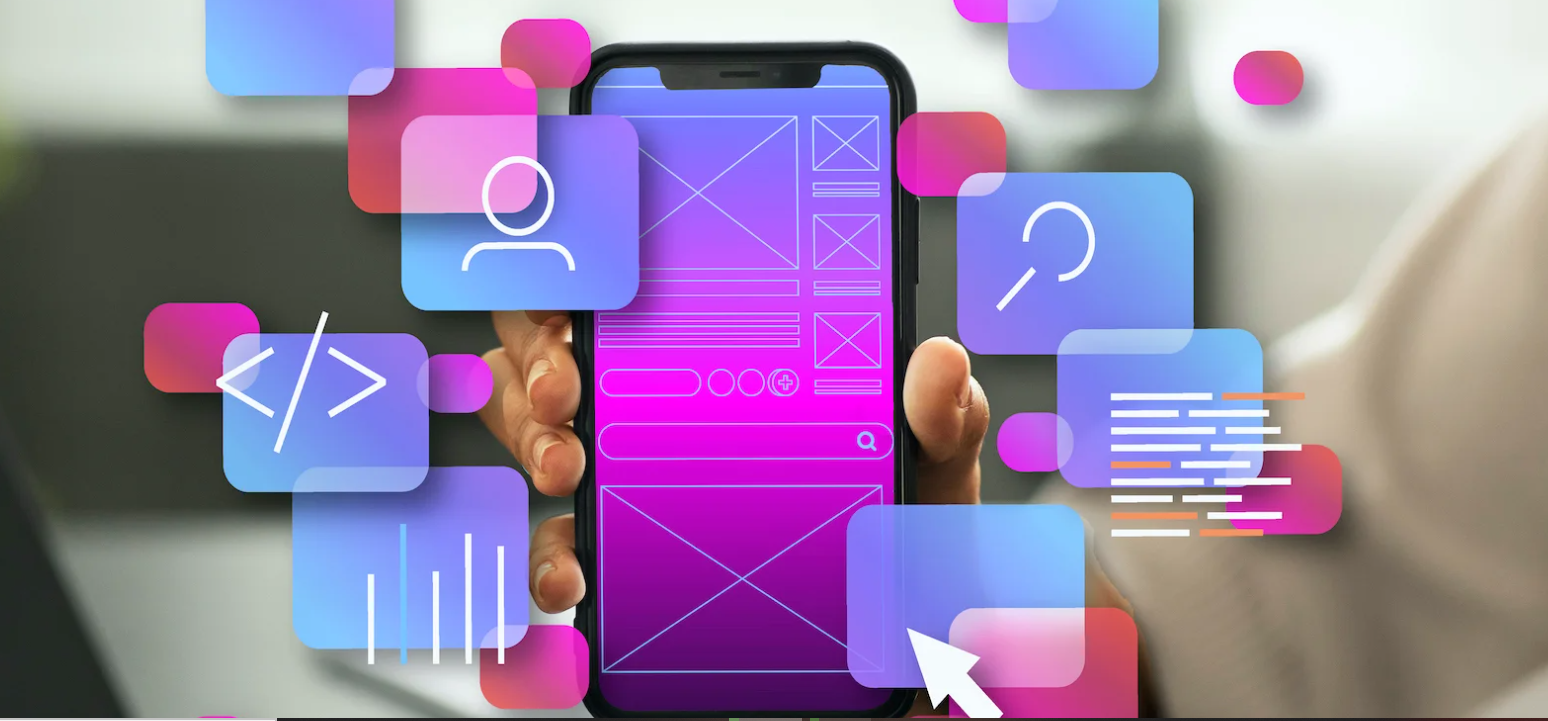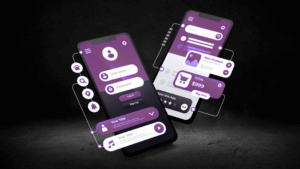
Introduction
Ever realized that our lives take place on apps? Whether it is food ordering or reserving a cab or chatting with friends: an app does it all. Mobile apps are not only the tools, but they are our everyday rhythm. And as a business, not paying attention to mobile app development is equivalent to leaving money on the table. In this article, mobile app development services are broken down, why it is important, and the guide to selecting the right one to work on your brand.
What Are Mobile App Development Services?
So, let us break it down. The mobile app development services refer to the professional services provided by technological enterprises to design, develop, test, and release the mobile application on either Android or iOS or both. Such services may include developing simple utility applications as well as multi-purpose, multi-function enterprise systems.
Why Your Business Needs a Mobile App
mAnd you are still thinking of whether or not you need an app in your business? Now, here is my question to you, do your customers have smart phones? Well, it depends on answers to the questions. If yes, then that is your answer. Mobile application enhances customer engagement and visibility of brands and increases revenue. They provide personal experiences that there is no way web sites can match.
Custom Mobile Development: Made to Fit
There is not a one-size-fits-all solution, at least when it comes to the app world. Custom mobile application development is concerned with the production of custom solutions capable of aligning with the user needs and business objectives. Being a fitness coach, a retail business, or a SaaS brand, personalized apps will help you make your vision come true.
iOS vs. Android Development: What’s the Difference?
Choosing between iOS and Android? Let’s make it easy:
| Feature | iOS | Android |
| User Base | Premium, mostly US & EU | Global, especially Asia & Africa |
| Development Language | Swift, Objective-C | Kotlin, Java |
| App Store | Apple App Store | Google Play Store |
| Approval Process | Strict and curated | More flexible |
| Monetization Potential | Higher average revenue per user | Larger volume of downloads |
Cross-Platform App Development: One Code, Two Platforms

What is the point of creating two apps when only one should be created? Frameworks such as Flutter and React Native have features that enable programmers to use the same code on Android and iOS. It conserves time, money, and equally provides a good performance.
Go native, to get the most work out of it. Native app development refers to app development that is done on a platform-specific basis such as Swift on iOS or Kotlin on Android. These programs are less sluggish, they are more attractive and they are more in-built into the device.
The Hybrid Apps: Middle Ground
Consider the hybrid apps as the jack of all-trades. They apply web technologies such as HTML, CSS and JavaScript and are encapsulated in a native environment. They are not fast as native apps, but they are suitable when it comes to MVP or simple apps.
It is all about design. Even a flawless mobile application will go down the drain unless the users get to know how to operate it. An excellent UI/UX (User Interface and User Experience) design makes it intuitive, captivating and seamless to use your app.
Backend Development: The Brains Behind the App
What you see in an app is just the tip of the iceberg. Behind every smooth interface is a powerful backend handling data, authentication, notifications, and more. Backend services are crucial for scalable, real-time apps like Uber, WhatsApp, or food delivery platforms.
No one likes a glitchy app. App testing is a crucial step to ensure your app works smoothly across all devices and operating systems. Testing services include functional testing, usability testing, performance testing, and security testing.
App Deployment: Going Live the Right Way
Ready to launch? Deployment is where your app goes live on the App Store or Play Store. But it’s not as simple as hitting ‘upload’. It involves preparing store listings, meeting platform guidelines, and optimizing your app for discoverability.
The launch is just the beginning. Mobile app development services also include post-launch support, updates, bug fixes, and new feature rollouts. Without proper maintenance, your app could quickly become outdated or buggy.
Choosing the Right Mobile App Development Partner
Here’s where it gets real. Not all developers are created equal. Look for these signs of a good partner:
- Proven portfolio with similar apps.
- Good communication and project management.
- Flexible pricing models.
- Transparent timelines and deliverables.
Cost of Mobile App Development Services
“How much will it cost?” That’s the big question. Well, it depends. Factors include:
- App complexity
- Features required
- Platforms (iOS, Android, both)
- Development team size and location
A simple app might cost $5,000–$20,000. More complex solutions can range from $50,000 to $150,000 or more.
Top Technologies Used in Mobile App Development
Modern apps are powered by cutting-edge tech. Here are a few popular choices:
- Languages: Kotlin, Swift, Dart, JavaScript
- Frameworks: React Native, Flutter, Xamarin
- Databases: Firebase, MySQL, MongoDB
- Cloud: AWS, Google Cloud, Azure
Future Trends in Mobile App Development
Let’s look ahead. Mobile app development is evolving fast. Some trends to watch include:
- AI & Machine Learning: Smarter, more personalized apps.
- AR/VR Integration: Immersive experiences for gaming and shopping.
- 5G Optimization: Faster, smoother real-time apps.
- Voice Assistants: Voice-first interactions are on the rise.
How Mobile Apps Impact Your Brand Identity
A well-designed app speaks volumes about your brand. It’s not just a tool—it’s your digital ambassador. Users associate your app with the quality and trust they can expect from your business. A poor app, on the other hand, can damage your reputation.
Conclusion
Mobile apps are not optional any longer they are necessary. Entrepreneur or established business, and even that person with a brilliant idea behind his/her back, professional mobile development services can change everything. However, do not forget that the launch of an app is only the beginning of the process, and the main thing is to bring value, solve problems and give people memorable digital experiences.
FAQs
What is the timeframe of mobile app development?
It is dependent on the complexity. Apps that are not complex would require two to three months to develop, whereas complex apps would require 6 months or more.
What is the difference between hybrid and native apps?
Natives are specific to the platform and have the advantage of better performance, whereas hybrids are inter-platform and could make either side during execution.
Will I be allowed to update my app once it will have gone in-store?
Absolutely! Once released, bug fixes, enhancements and changes based on user input can be very essential.
Do I require different apps in iOS and android?
Not necessarily. Cross-platforms framework enables a single app to be supported on the two platforms with only one codebase.
How can I find out whether my app idea is good?
Conduct a market research, test your idea with its potential users and develop a prototype or minimum viable product (MVP) to test without developing it fully.